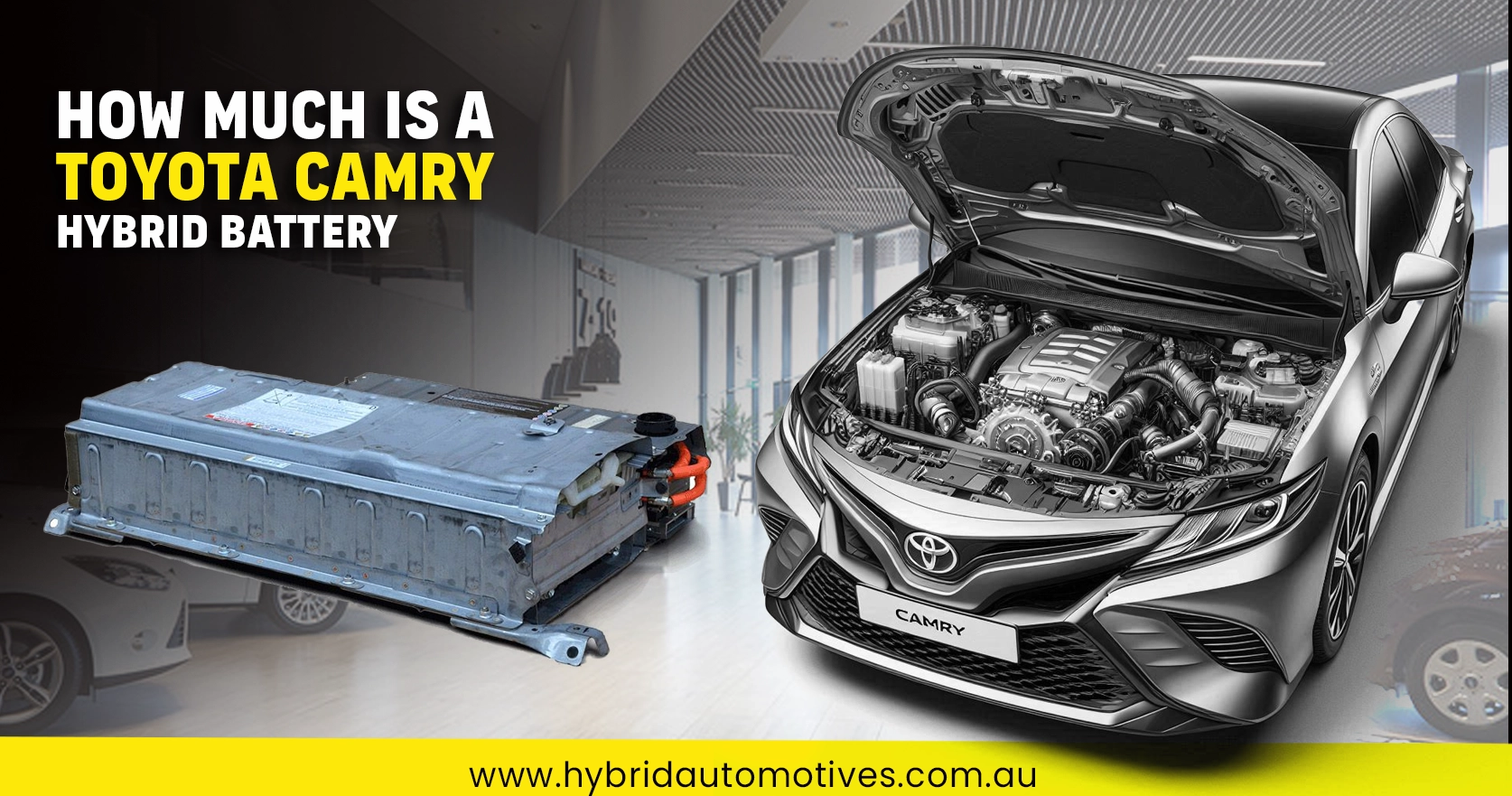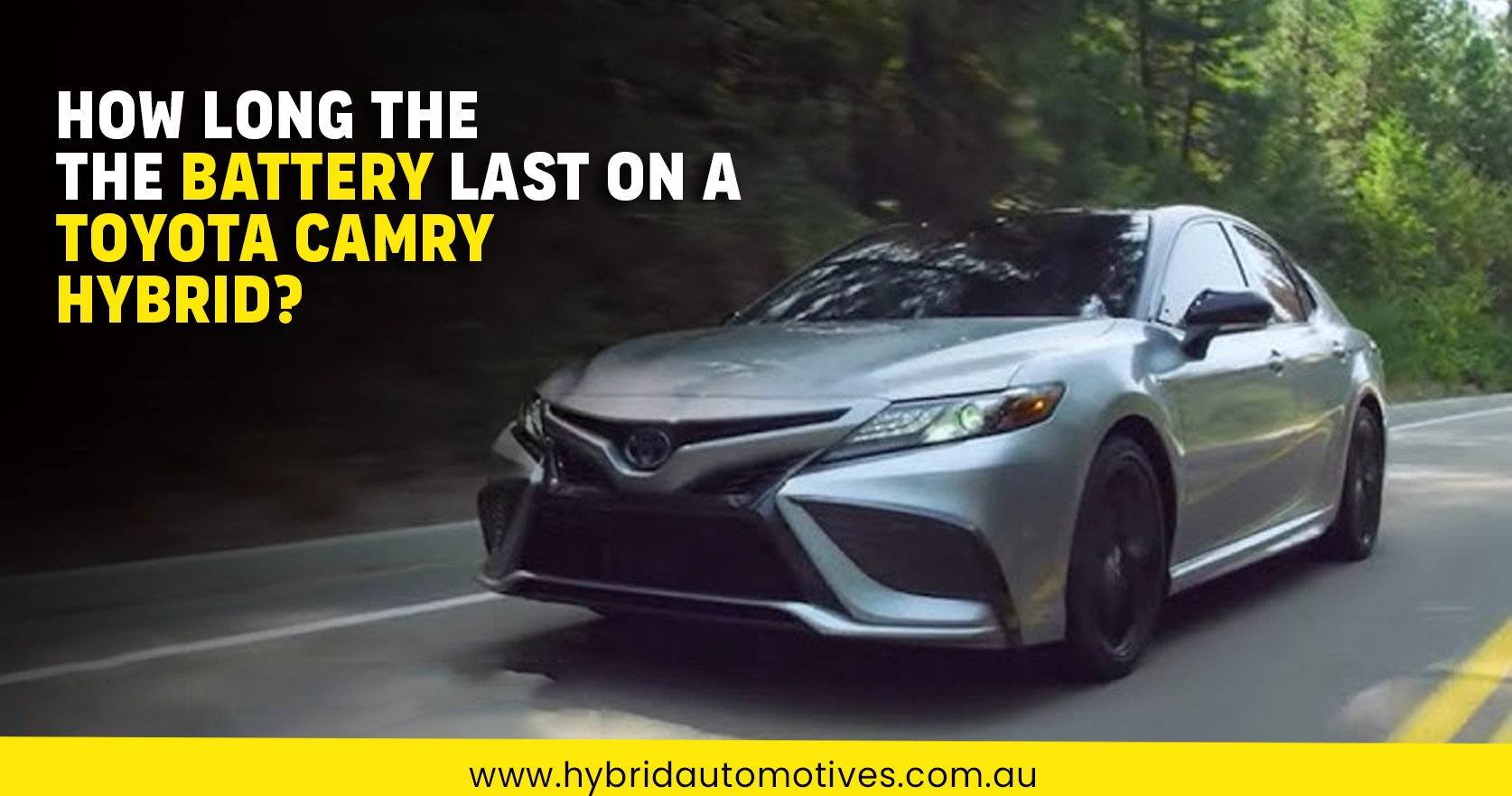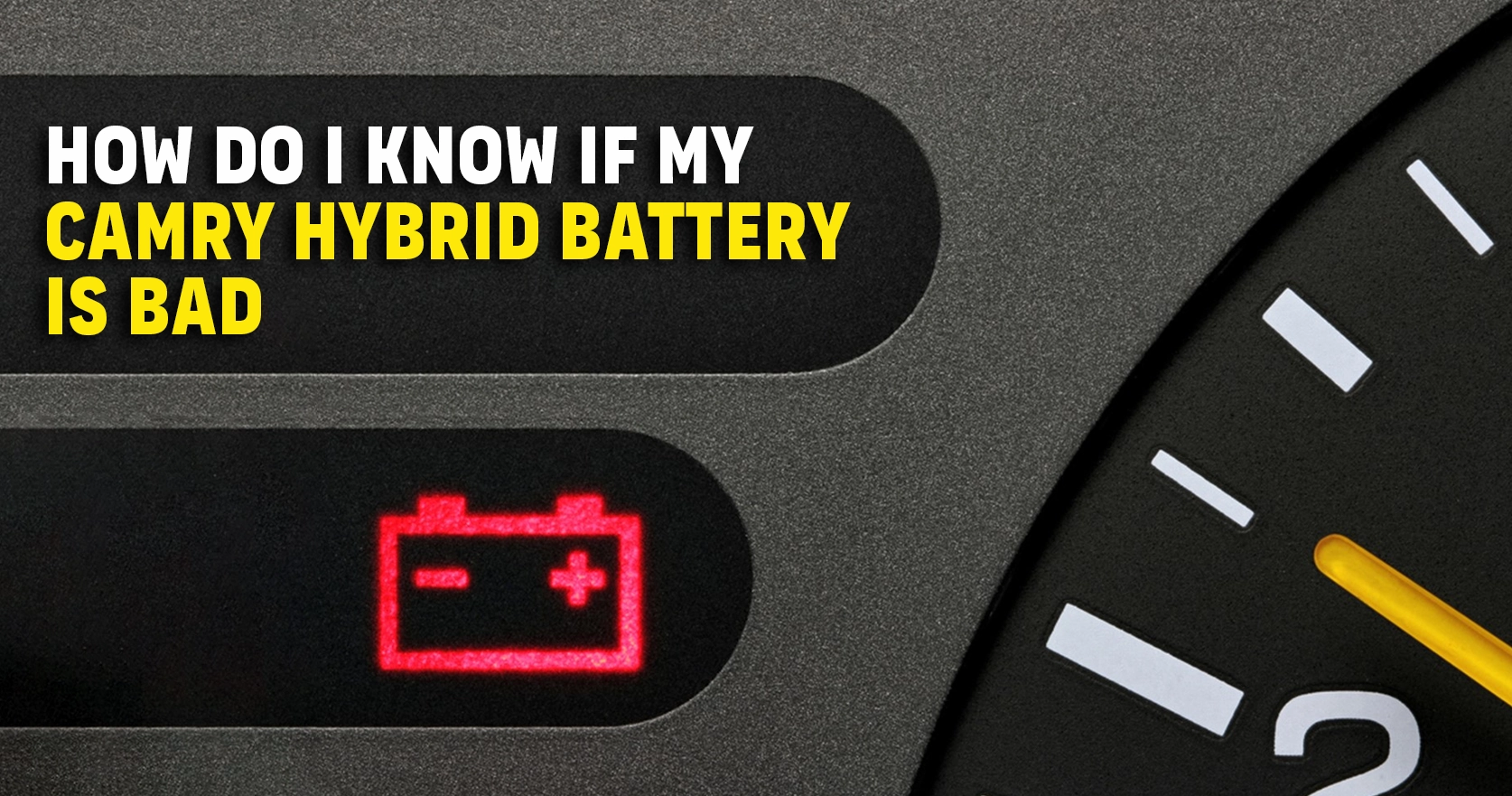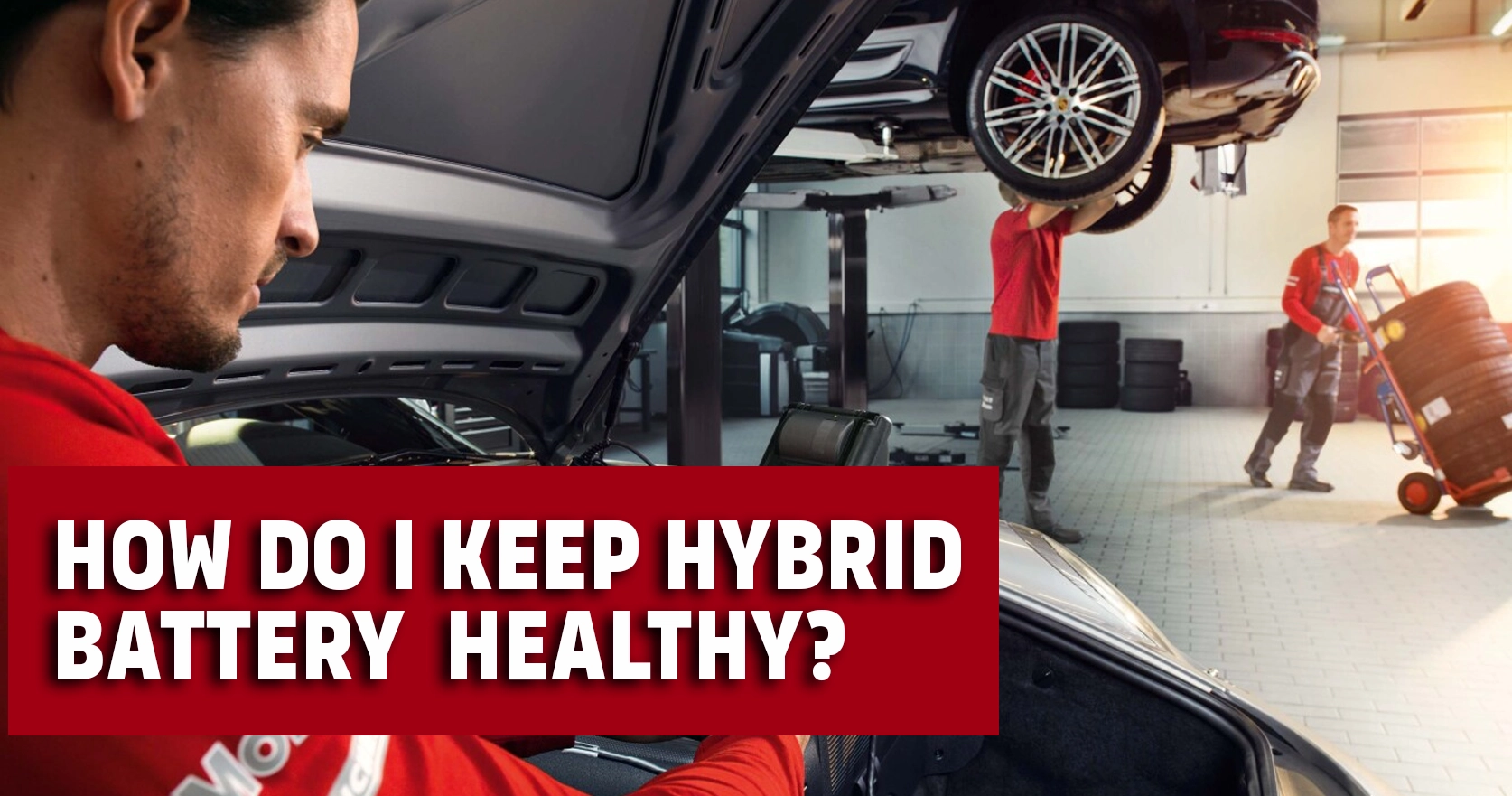Everything You Need to Know About Toyota Camry Hybrid Batteries
Is It Worth Replacing a Toyota Camry Hybrid Battery?
Yes, Replacing a Toyota Camry hybrid battery can be a wise investment. A new battery can extend the life of your vehicle, restore fuel efficiency, and improve overall performance. While the cost may be significant, it is often more economical than purchasing a new car. Additionally, replacing the battery can enhance the car’s resale value. Here’s a breakdown of considerations to help you decide:
Condition of the Vehicle
- Overall Condition: If your Camry is in excellent condition with no major issues, replacing the battery can keep it running efficiently for many more years.
- Maintenance History: A well-maintained car is more likely to benefit from a new battery than one with a history of neglect or other mechanical problems.
Usage and Future Plans
- Long-Term Ownership: If you plan to keep the car for several more years, a new battery can be a good investment, providing reliability and better fuel efficiency.
- Resale Value: A new hybrid battery can enhance the resale value, making the car more attractive to potential buyers if you decide to sell it.
How Much Is a Toyota Camry Hybrid Battery?
The cost of a new Toyota Camry hybrid battery can range from $2,000 to $5,000, depending on the model year and the dealership or service center. Prices may vary, so it’s advisable to shop around for the best deal. Here’s a more detailed breakdown:

Factors Influencing the Cost
1. Model Year:
- Older Models: Batteries for older Camry Hybrid models might be less expensive, as they may use older technology. However, availability can sometimes be an issue, which might affect price.
- Newer Models: Newer Camry Hybrids often have more advanced battery technology, which can be more costly. These batteries might offer better performance and longer life but come at a higher price.
2. Type of Battery:
- New Batteries: Purchasing a brand-new hybrid battery from a Toyota dealership typically falls within the $2,000 to $5,000 range. New batteries come with the latest technology and a full warranty.
- Refurbished Batteries: A refurbished or reconditioned battery can be a more economical option, often costing between $1,500 and $2,500. These batteries have been repaired and tested to ensure they meet performance standards but may come with a shorter warranty period.
3. Dealership or Service Center:
- Authorized Dealerships: Getting a battery from an authorized Toyota dealership can ensure quality and compatibility but may come at a higher price due to dealership overheads.
- Independent Service Centers: Independent or specialist hybrid service centers might offer competitive pricing and discounts. However, it’s essential to verify their credentials and warranty terms.
4. Labor Costs:
- Installation: The cost of labor for installing a new hybrid battery can vary, typically ranging from $500 to $1,000. The cost of installation can vary depending on the complexity of the process and the hourly rates charged by the service center.
- Additional Services: Some service centers might include additional services, such as diagnostic checks or software updates, as part of the installation package.
How Long Does the Battery Last on a Toyota Camry Hybrid?
A Toyota Camry hybrid battery typically lasts 8 to 10 years or approximately 100,000 to 150,000 miles. This lifespan can vary based on driving conditions, maintenance, and climate.

Factors Influencing Battery Life:
1. Driving Conditions:
- City vs. Highway Driving: Frequent stop-and-go city driving can cause the battery to cycle more often, potentially leading to a shorter lifespan compared to highway driving.
- Driving Habits: Aggressive driving, including rapid acceleration and heavy braking, can put more strain on the battery compared to smooth, consistent driving.
2. Maintenance:
- Regular Check-Ups: Keeping up with regular maintenance, including hybrid system checks, can help identify and address issues early, potentially extending battery life.
- Software Updates: Ensuring that the car’s software is up-to-date can optimize battery performance and longevity.
3. Climate:
- Temperature Extremes: Extreme temperatures, both hot and cold, can impact battery health. Consistent exposure to very high or very low temperatures can degrade the battery more quickly.
- Humidity: High humidity can also affect battery components, leading to potential issues over time.
Can You Drive a Camry Hybrid Without a Battery?
No, you cannot drive a Camry hybrid without a functional hybrid battery. The battery is essential for the hybrid system to operate, as it powers the electric motor and assists the gasoline engine. Without it, the vehicle will not operate correctly.
How Do I Know If My Camry Hybrid Battery Is Bad?
Knowing if your Toyota Camry Hybrid battery is failing is crucial for maintaining the performance and efficiency of your vehicle. Here are detailed signs that your hybrid battery might be going bad, along with some factual data:

1. Reduced Fuel Economy:
- Symptom: One of the first and most noticeable signs of a failing hybrid battery is a drop in fuel efficiency. You might find yourself needing to refuel more often.
- Data: The hybrid system relies on the battery to assist the gasoline engine, especially during low-speed driving. A weak battery can’t provide sufficient support, causing the gasoline engine to work harder and consume more fuel.
2. Unusual Engine Noises:
- Symptom: You might hear strange noises coming from the engine or the area where the battery is located. This could be due to the gasoline engine running more frequently to compensate for the battery’s reduced performance.
- Data: The hybrid system is designed to run smoothly and quietly. Any deviation from this, like increased engine noise, can indicate that the hybrid battery is not functioning correctly.
3. Hybrid System Warning Light:
- Symptom: The hybrid system warning light or the “Check Hybrid System” message on the dashboard is a clear indicator that there is an issue with the hybrid battery.
- Data: The onboard diagnostics system constantly monitors the performance of the hybrid components. If it detects a problem, it triggers the warning light to alert the driver.
4. Decreased Battery Charge Retention:
- Symptom: You might notice that the battery charge level drops faster than usual or that it doesn’t hold a charge as long as it used to. The battery may also take longer to recharge.
- Data: Hybrid batteries are designed to hold a certain charge level and discharge at a controlled rate. As the battery ages and loses capacity, it can’t retain charge effectively, leading to quicker depletion and slower charging.
5. Diminished Performance in Electric-Only Mode:
- Symptom: The car may not stay in electric-only mode for as long as it used to, or it may struggle to switch to electric mode at all. You might also notice a lack of power during acceleration.
- Data: The hybrid battery provides the necessary power for the electric motor. When the battery is weak, it can’t supply adequate power, reducing the time the car can run on electric power alone and affecting overall performance.
Diagnostic Steps
- Monitor Fuel Economy: Monitor your fuel consumption over time. A significant decrease in miles per gallon (MPG) can indicate battery issues.
- Listen for Noises: Pay attention to any unusual sounds from the engine compartment, particularly when starting the vehicle or during low-speed driving.
- Dashboard Warnings: Regularly check the dashboard for any warning lights or error messages. If the hybrid system warning light appears, it’s essential to have the vehicle inspected by a professional.
- Check Charge Levels: Observe how the battery charges and discharges. Rapid changes in charge levels or a consistently low charge can indicate a problem.
- Performance Checks: Test the vehicle’s performance in electric-only mode. Reduced power or difficulty staying in electric mode can indicate battery deterioration.
How Do I Keep My Hybrid Battery Healthy?
Keeping your hybrid battery healthy is essential for the longevity and efficiency of your Toyota Camry Hybrid. Here are detailed steps to maintain the health of your hybrid battery, supported by factual data:

Follow the Manufacturer’s Recommended Maintenance Schedule
- Regular Inspections: Ensure that your car undergoes regular check-ups as specified in the owner’s manual. Toyota advises regular inspections of the hybrid system components, including the battery, as part of scheduled maintenance.
- Professional Servicing: Having your car serviced by professionals who are trained to handle hybrid systems can help identify and address potential issues early. This includes checking for software updates that optimize battery performance.
Avoid Extreme Temperatures as Much as Possible
- Heat and Cold Effects: Extreme temperatures can significantly impact the performance and lifespan of your hybrid battery. High temperatures can cause the battery to overheat, while extremely cold temperatures can reduce its efficiency.
- Climate Control: If you live in an area with extreme temperatures, try to park your car in a garage or shaded area during hot weather and in a warm garage during cold weather. Using the climate control system to maintain a stable temperature can also help protect the battery.
Drive Your Car Regularly to Maintain Battery Charge
- Regular Use: Hybrid batteries are designed to be used regularly. Driving your car frequently ensures that the battery stays charged and prevents it from becoming overly depleted.
- Charge Cycling: Hybrid systems are built to optimize battery charge cycles. Regular driving helps maintain the proper charge and discharge cycles, which is crucial for battery health. If your car sits idle for extended periods, it may affect the battery’s ability to hold a charge.
Ensure That Your Cooling System for the Battery Is Clean and Functioning Properly
- Battery Cooling System: Hybrid batteries are equipped with cooling systems to prevent overheating. Ensure that the cooling system, including vents and fans, is clean and free of obstructions.
- Regular Cleaning: Check and clean the air intake vents for the battery cooling system periodically. Dust and debris can block airflow, causing the battery to overheat and degrade faster.
What Is the Warranty on a Toyota Camry Hybrid Battery?
Toyota typically offers an 8-year or 100,000-mile warranty on hybrid batteries. However, newer models often come with an extended warranty of up to 10 years or 150,000 miles, providing additional peace of mind for hybrid owners.
FAQs (Frequently Ask Questions)
Q. Can I use a refurbished battery for my Toyota Camry Hybrid?
A. Yes, you can opt for a refurbished or reconditioned battery as a more economical alternative to a new one. However, be sure to verify the warranty and quality of the refurbished battery before making a decision.
Q. What happens to old hybrid batteries once they are replaced?
A. Toyota and other manufacturers often have recycling programs for old hybrid batteries. These batteries contain valuable materials that can be reused or repurposed, reducing environmental impact.
Q. Can I replace a Toyota Camry Hybrid battery myself, or is it a job for professionals?
A. While technically possible, replacing a hybrid battery is a complex task that requires specialized tools and expertise. It’s recommended to have the battery replaced by trained professionals at an authorized dealership or service center.
Q. Are there any aftermarket options available for Toyota Camry Hybrid batteries?
A. Yes, there are aftermarket options available for Toyota Camry Hybrid batteries. However, it’s essential to ensure compatibility and quality, as using non-OEM (Original Equipment Manufacturer) batteries could affect performance and warranty coverage.
